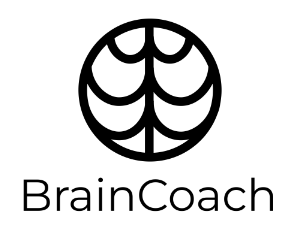Acetylcholine: neurotransmitter involved in memory formation
ADD/ADHD: these are commonly diagnosed behaviour disorders-problems with the prefrontal cortex-typical conditions are: can't sit still, disorganized, lack patience, always fidgety
Adolescent: the period of life from puberty to maturity. Today adolescence begins at the approximate age of 11
Adrenalin: hormone released under stress
Alpha brain waves: lower frequency brain waves, a stress free state of consciousness
Alzheimer’s Disease: progressive degenerative brain disease, no cure known at this time
Amygdala: small, almond shaped part of brain, the fear & emotional switch
Antioxidants: protect the brain against free radical damage
Aspartame: artificial sweetener, toxic to brain cells---new marketing name is 'Amino Sweet'
Axon: long fibers extending from brain cells carrying signals
Baroque music: most highly recommended music -- Bach, Vivaldi and Handel are the superstar composers
Beta brain waves: higher frequency brain waves produced from normal, daily activities
Brain cells: you were born with 100 billion brain cells called neurons
Brain-based learning: how the brain learns best naturally
Brain Gym: simple physical exercises to wake up the brain
Brain reserve: knowledge, information and trillions of connections, it generally decreases with age
Brain states: the condition of your mind and body at any given moment, learning begins in the correct brain states
Brain waves: electrical patterns created by neurons
Cerebellum: structure next to brain stem, balance, muscle coordination, it is linked to cognition
Cerebral cortex: outer most wrinkly part of the brain, has countless neurons
Cognition: the process of knowing and understanding
Concussions: brain damage, also called brain insults
Corpus collosum: the wall between right and left hemispheres, has millions of nerve fibers
Cortisol: hormone produced under stress, excess is harmful
Creativity: bringing about something new--the world we live in is inherently creative and so are all human beings
Cross overs: moving an arm or a leg across the midfield of the body to get both sides of the brain working
Dementia: an aging brain’s inability to cope with everyday routines
Dendrites: strand or branch like fibers connected to the neuron, receptors for axons, each cell has many dendrites
DHA: part of omega 3 essential fatty acid, very best brain fat
DHEA: youthful hormone produced by the adrenal glands
Dopamine: powerful neurotransmitter, all time feeling good chemical, the chemical of rewards
Downshift: the brain is under stress and the fight/flight mode is engaged
EPA: second part of omega 3 essential fatty acid - keeps mood stable
Excitotoxins: food additives that kill brain cells eg-msg, aspartame
Free Radicals: unstable molecules, destroy neurons
Frontal lobes: front of the brain’s executive center, higher order thinking skills, problem solving, planning, organization, etc
GABA: neurotransmitter, acts as an “off” switch
Glial: another type of brain cell, supports neurons
Hippocampus: involved in learning and memory
Hypothalamus: switch in the middle of the brain, regulates appetite, sleep, emotions
Inflammation: triggered in the brain by poor lifestyle choices, silent brain killer
Imagination: critical for children, teenagers and adults and far more essential for the brain than collecting knowledge
Learned Helplessness: is a state of inertia, apathy and a feeling of powerlessness
Learned Optimism: a positive brain state that promotes learning, health and well-being
Mind maps: simple, mental models making learning easier
Mitochondria: energy producing cells in neurons
Multi-switching: how activities are done in the brain
Multi-tasking: ability to do many things at once (machines)
Myelin: white fat that coats the axons, helps cells communicate
Neurogenesis: growing new brain cells
Neurons: name given to brain cells (typically we have billions) receives information from dendrites and sends messages along axons
Neurotransmitters: the brain’s chemical messengers
Occipital lobe: receives and processes visual information
Omega 3 sources: fish, flax, olive oil, eggs, walnuts, hemp hearts
Oxytocin: neurotransmitter, the bonding chemical
Parietal lobe: sensory and language functions
Plasticity: the brain’s neurons change constantly
Serotonin: neurotransmitter regulates mood, learning & sleep
Synapse: a space or junction area where neurotransmitters are released from one neuron to another
Sitting disease: a lifestyle with little movement or exercise
Teenagers: recent research states that adolescence begins at age 11
Temporal lobes: responsible for language, speech, hearing, memory & learning
Upshift: when the activity of the brain is in the prefrontal cortex
